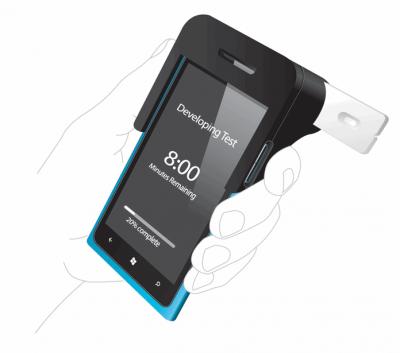 Researchers from Intermountain Healthcare have developed a smartphone-based test for measuring salivary cortisol, which can help care providers understand the patient's stress levels. The test can be performed at the point of care in just five minutes.
Researchers from Intermountain Healthcare have developed a smartphone-based test for measuring salivary cortisol, which can help care providers understand the patient's stress levels. The test can be performed at the point of care in just five minutes.
When someone feels stress, their body’s natural response is to release hormones, including adrenaline and cortisol, to help them deal with the “threat”. When cortisol is released, it increases glucose in the system, but also curbs nonessential functions including the digestive system, the reproductive system and growth processes.
When people feel stress throughout the day, thus releasing too much cortisol, it can lead to anxiety, depression, digestive problems, heart disease, sleep problems, weight gain, and memory and concentration impairment.
To perform the test, care providers use a smartphone's camera to take a picture using the flash. From there, the image analysis app can identify the user's cortisol levels.
"When cortisol levels are overlooked too many people suffer and die because of excess or insufficient cortisol," lead researcher and Intermountain Medical Center Director of Diabetes and Endocrinology Dr. Joel Ehrenkranz said in a statement.
Ehrenkranz also believes this test will be especially helpful for people with diabetes.
"What this means is when blood cortisol levels are too high, insulin will not lower blood sugar," Ehrenkranz said. "Elevations in cortisol decrease the effectiveness of insulin and other drugs used in the treatment of diabetes. Having the ability to easily and inexpensively measure cortisol levels is important in managing diabetes."
That said, he adds that the test also helps people with other conditions and a number of adrenal gland diseases, including Cushing's syndrome.
"Measuring salivary cortisol at the point-of-care in five minutes using an inexpensive immunochromatographic assay, reader, and smartphone may obviate the need to presumptively treat patients for adrenal insufficiency and makes cortisol assays available to regions of the world which currently lack access to this diagnostic test," the researchers wrote.














